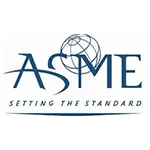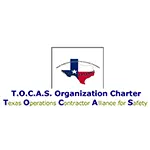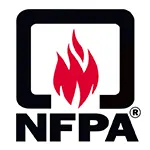Let us help you make sense of PSM / RMP!
My friend Brian Chapin will be offering an open-enrollment PSM/RMP class in Burleson, Texas, July 8th to 11th, 2025. Brian is an absolute pro in NH3 Refrigeration Process Safety. Anyone who attends will also get a FREE membership to SAFTENG. You can get more information on the class with this link.
CLICK HERE to Renew your Membership
CLICK HERE for a NEW Membership
CLICK HERE to see eligibility requirements for FREE Membership
If you have any questions, please contact m
SAFTENG has:
- Over 18,000 categorized unsafe acts/conditions and accident/injury photos
- Over 1,500 ppt's & doc's in the SAFTENG Library
- Over 4,000 Technical Articles on Process Safety, Emergency Response & OSH topics
- Over 450 videos (those not allowed on YouTube Channel)
Many THANKS to my NEW Members and those who CONTINUE to support SAFTENG:














May 8, 2025
Yes, hazardous chemicals present at rail yards are subject to EPCRA Sections 311 and 312, if they are NOT stored incident to transportation and they are present at the rail yard in amounts equal to or in excess of the minimum thresholds in 40 CFR 370.10(a). As explained in the answer to the question “are hazardous chemicals in transportation subject to EPCRA 311/312,” the Section 327 exemption for...
Read More
May 8, 2025
The risk management program in 40 CFR Part 68 requires facilities to conduct an off-site consequence analysis (OCA) to provide information to state, local, and federal governments and the public about the potential consequences of an accidental chemical release. When does a facility need to revise its OCA?
…
HomeRead More »
Read More
May 8, 2025
When using RMP*Comp to conduct an offsite consequence analysis (OCA), a facility must specify the quantity released. What quantity should be entered for a regulated toxic substance in an aqueous solution, the total quantity of the aqueous solution or just the quantity of the toxic substance?
…
HomeRead More »
Read More
May 8, 2025
The definition of public receptor is “offsite residences, institutions (e.g., schools, hospitals), industrial, commercial, and office buildings, parks, or recreational areas inhabited or occupied by the public at any time without restriction by the stationary source …” Offsite is further defined to include “areas within the property boundary [of the stationary source] to which...
Read More
May 8, 2025
When analyzing the worst-case scenario for regulated toxic substances, must I anticipate a specific cause (e.g., fire, explosion, etc.) of the scenario?
…
HomeRead More »
Read More
May 8, 2025
Does public receptor cover only buildings on a property or the entire property? If the owner of the land next to my site restricts access to the land, is it still a public receptor?
…
HomeRead More »
Read More
May 8, 2025
What if a flammable event has a different time duration than the 5 kw/m2 for 40 seconds?
…
HomeRead More »
Read More
May 8, 2025
For the worst-case and alternative release scenarios of an underground storage tank, should I consider any impact on groundwater, drinking water, or soil?
…
HomeRead More »
Read More
May 8, 2025
I am working on the five-year accident history portion of the hazard assessment under the RMP. Section 68.42(a) tells me to include “all accidental releases from covered processes that resulted in deaths, injuries, or significant property damage on site, or known offsite deaths, injuries, evacuations, sheltering in place, property damage, or environmental damage.” Is there a definition...
Read More
May 8, 2025
Should the owner or operator include accidental releases from processes containing listed substances below the threshold quantity in the five-year accident history required under the hazard assessment provisions of 40 CFR Part 68, Subpart B, and in the incident investigation requirements under 40 CFR Part 68, Subparts C and D?
No.
…
HomeRead More »
Read More
May 4, 2025
In 2025, I have already challenged three times regarding the proper pressure testing of piping systems. I am unsure where we got off track with this rather simple requirement. First, let’s look at how ASME B31.3 defines “design pressure.”
…
HomeRead More »
Read More
May 4, 2025
System pressure gauges are often required to provide more accurate system pressure readings than regulator gauges can provide. Pressure gauges:
…
HomeRead More »
Read More















